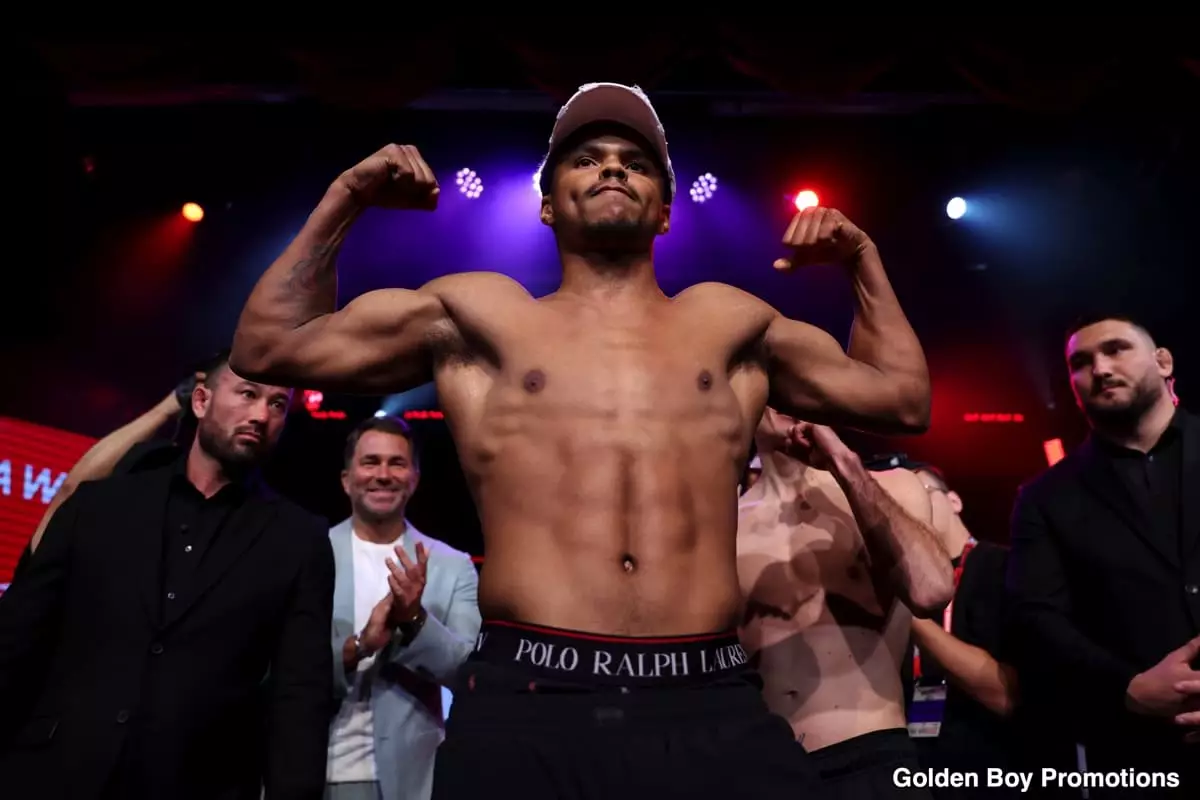Boxing is a sport built on history, legacy, and respect. Every fighter who steps into the ring is influenced by the legends who came before them, shaping their style and mentality. Shakur Stevenson’s recent comments about Sugar Ray Robinson, one of boxing’s most revered figures, not only display a lack of understanding but also threaten to tarnish his reputation within the sport’s rich tradition. Robinson’s legacy is monumental, representing a standard of excellence, bravery, and innovation that transcends generations. To dismiss such a legend with dismissive language reveals more about Stevenson’s immaturity and ignorance than about his understanding of boxing.
When modern fighters belittle the achievements of past champions, they risk undervaluing the sport’s history and discrediting their own careers. Respect for the legends fosters a sense of continuity and honor within boxing. It reminds us why the sport is cherished — because it’s a battleground where heroes are forged through adversity, sacrifice, and perseverance. Stevenson’s disrespect not only disrespects Robinson but also undermines his own growth as a boxer who should be aspiring to greatness, not ridiculing those who set the standards he claims to follow.
Why Swagger and Respect Matter More Than Trash Talk
Controversy, trash talk, and bravado are part of boxing’s allure, but there’s a line that shouldn’t be crossed — particularly when it involves the sport’s legends. Stevenson’s comments calling Robinson “buns” and claiming Terence Crawford would “run rings around” Robinson reveal a troubling lack of perspective. These remarks seem designed to generate buzz rather than reflect genuine insight or respect. Real champions understand that legacy is built on deeds in the ring, not on dismissive comments that diminish the sport’s history.
Boxers like Sugar Ray Leonard, Muhammad Ali, and Robinson themselves not only fought boldly but also spoke with dignity, recognizing the sacrifices of those who came before. When Stevenson diminishes Robinson with flippant words, it suggests a superficial approach rooted in posturing rather than a true appreciation for the art of boxing. Success requires humility and a willingness to learn from history, attributes that Stevenson seems to lack at this moment. In the long run, fighting with integrity and respect for your opponents elevates your status and leaves a more meaningful imprint on the sport.
The Danger of Playing It Safe: Missing the Spirit of True Boxing
Barry McGuigan’s critique of Stevenson’s “safety-first” fighting style is justified. Boxing’s allure lies in its unpredictability and warriors willing to take risks, to demonstrate both skill and heart. Stevenson’s cautious approach, as described, resembles a blueprint for mediocrity: a fighter content to win by points and hold back in pursuit of “security.” While a mathematical record of 23 wins and 11 knockouts might appear impressive, it lacks the excitement and raw vulnerability that turn ordinary fighters into legends.
Robinson, Leonard, and even Mayweather, in his earliest days, understood that true greatness is earned through courageous performances. Stevenson’s reluctance to engage boldly makes fans question whether he truly embodies the spirit of boxing’s greatest. From a critical standpoint, fighters should aim for moments of brilliance, risking it all for legacy, not just safe wins. A fighter who fights on the front foot, who dares to stand and trade, has a chance to etch his name into history more profoundly than one who plays it safe behind a defensive shell.
Respect Over Reverence: A Call for Maturity in the Ring
In the final analysis, Stevenson’s comments reflect a lack of maturity and humility — qualities essential for those who aspire to be considered great. The sport demands not just skill but also character, especially when representing its history. As McGuigan astutely points out, Stevenson has yet to prove himself in the same league as Robinson or Leonard, both of whom demonstrated resilience, daring, and seismic performances that define true boxing greatness.
While a single fight might temporarily boost a fighter’s profile, long-term respect is rooted in how one conducts themselves beyond the ring. Words matter, and the way a champion reveres or disrespects others can either elevate or diminish their legacy. Stevenson’s challenge is not just to beat William Zepeda tonight, but to shape his image as a fighter worthy of respect. If he truly seeks greatness, he needs to reflect on the legends he dismisses, learn from their sacrifices, and realize that true power in boxing stems not from trash talk but from consistent displays of courage, skill, and humility.

